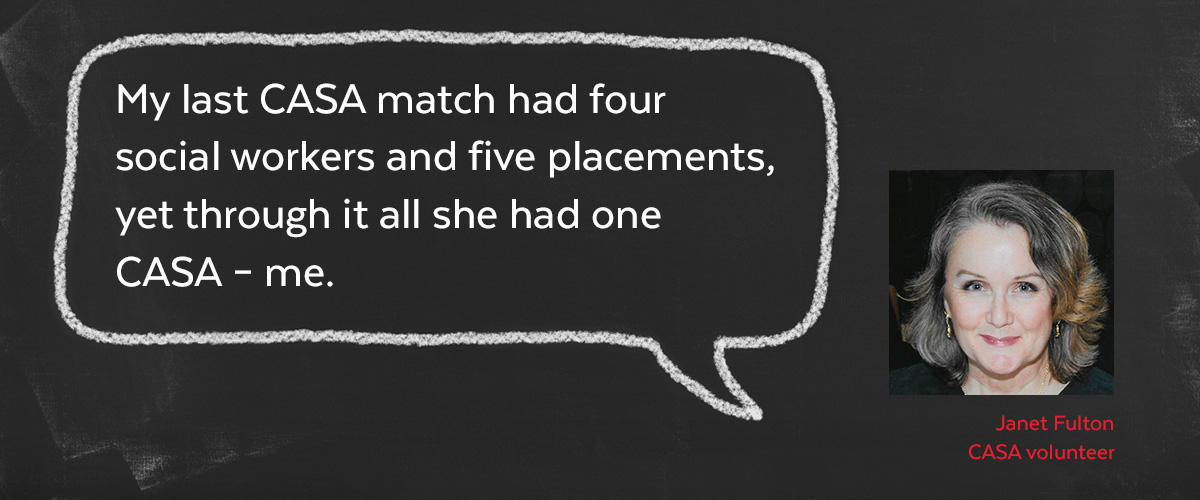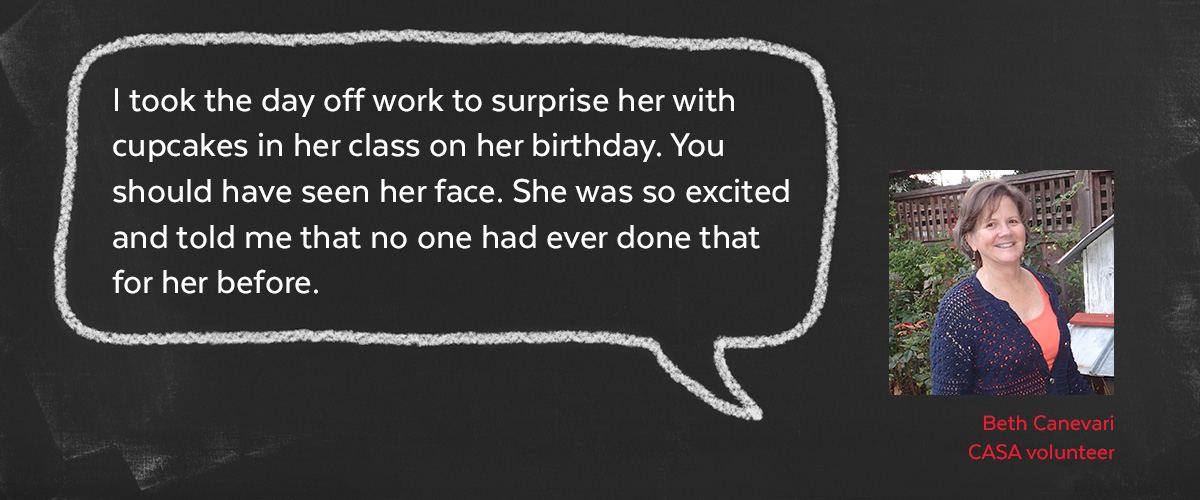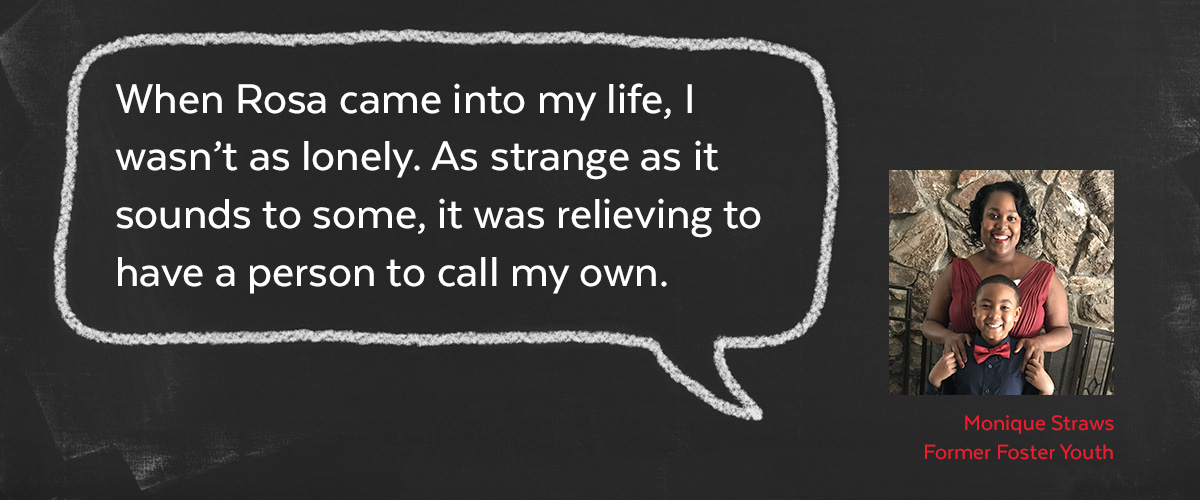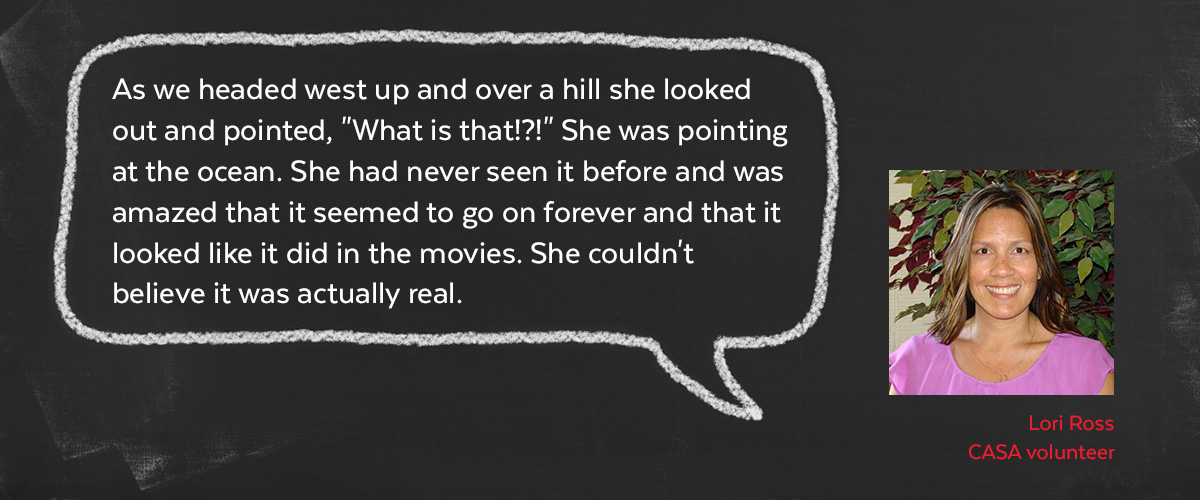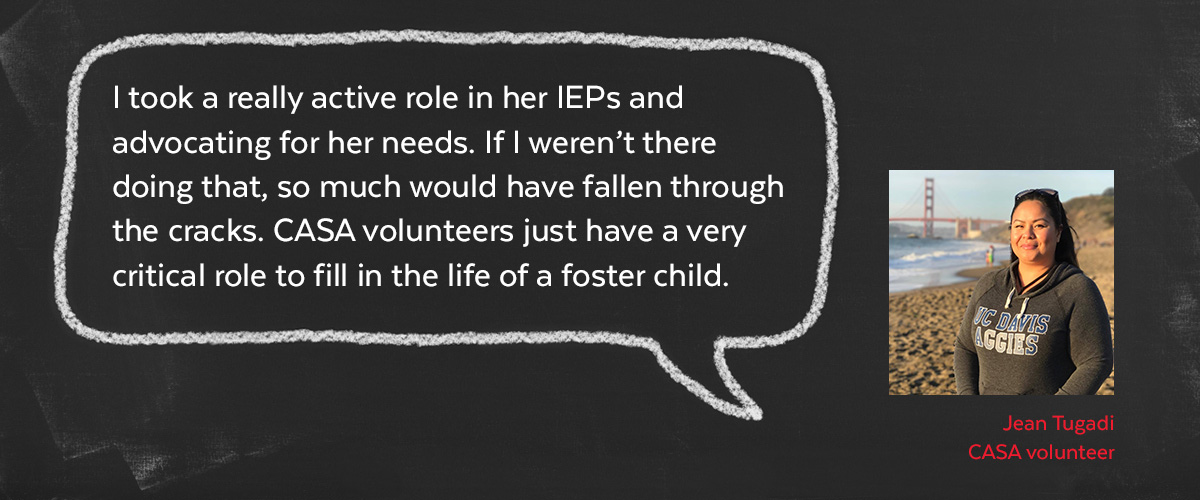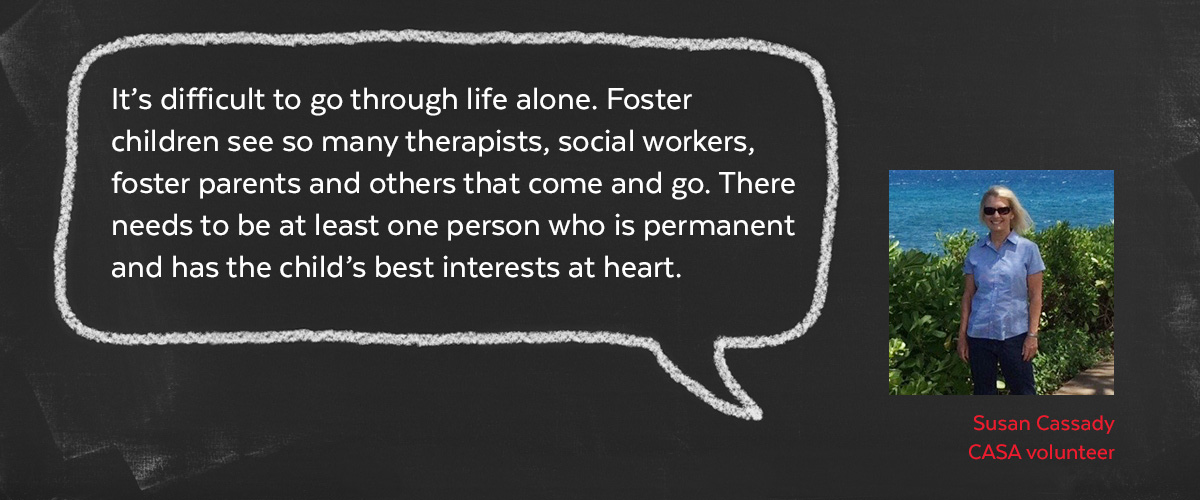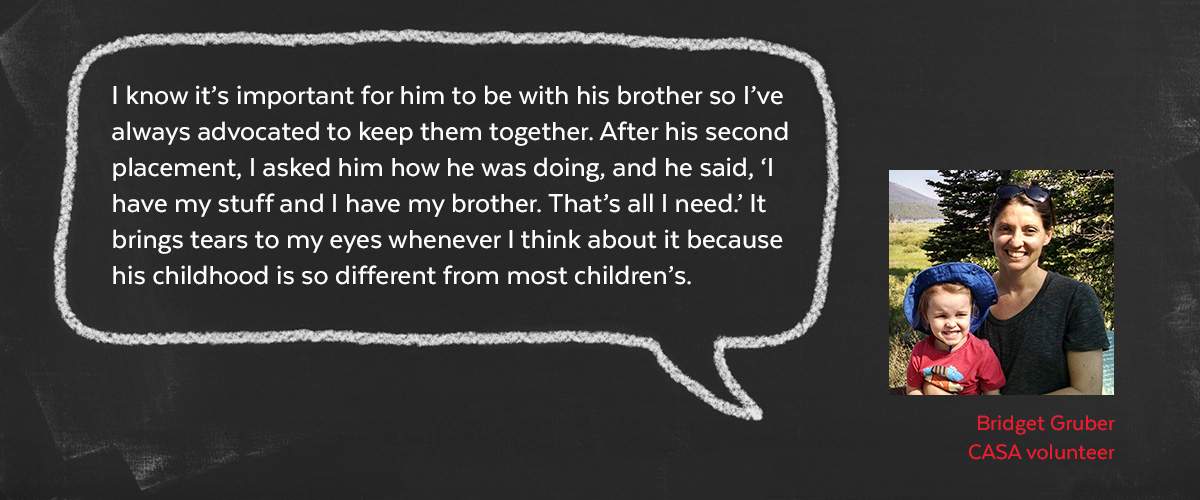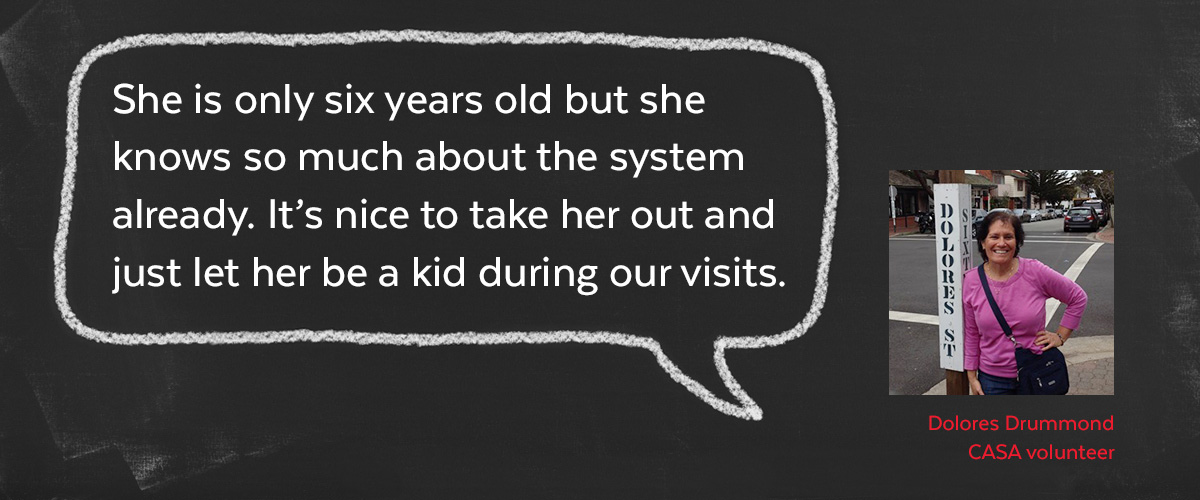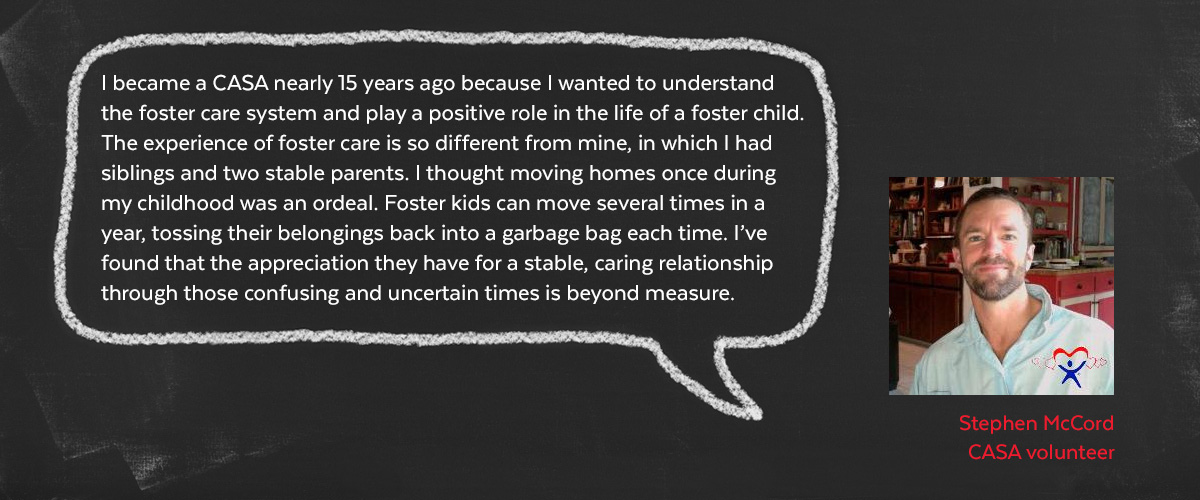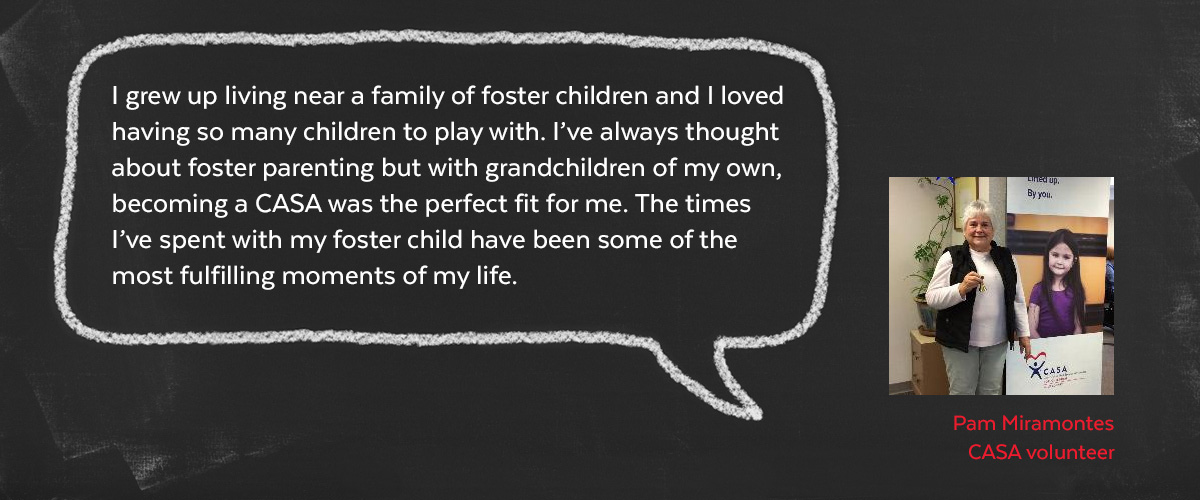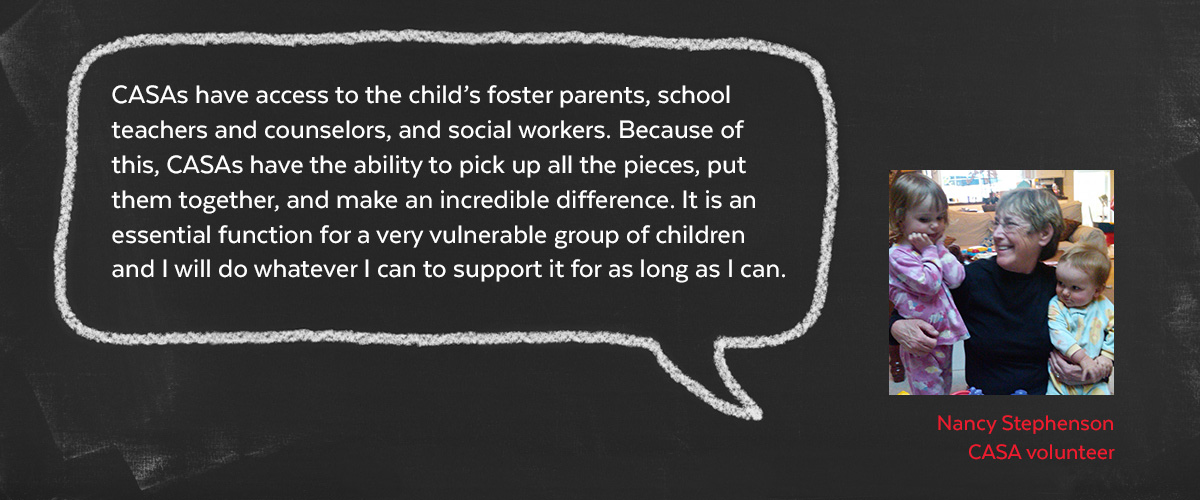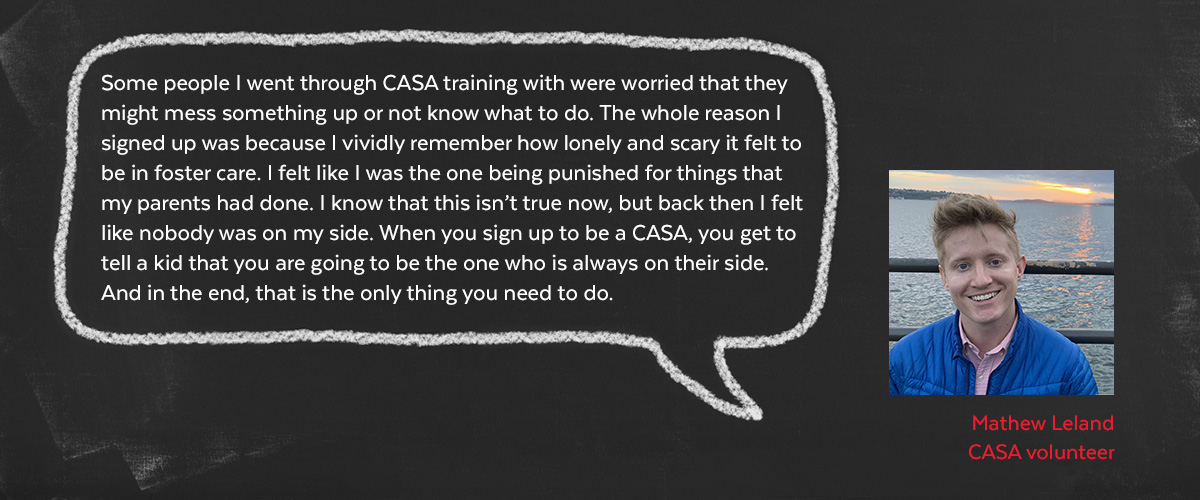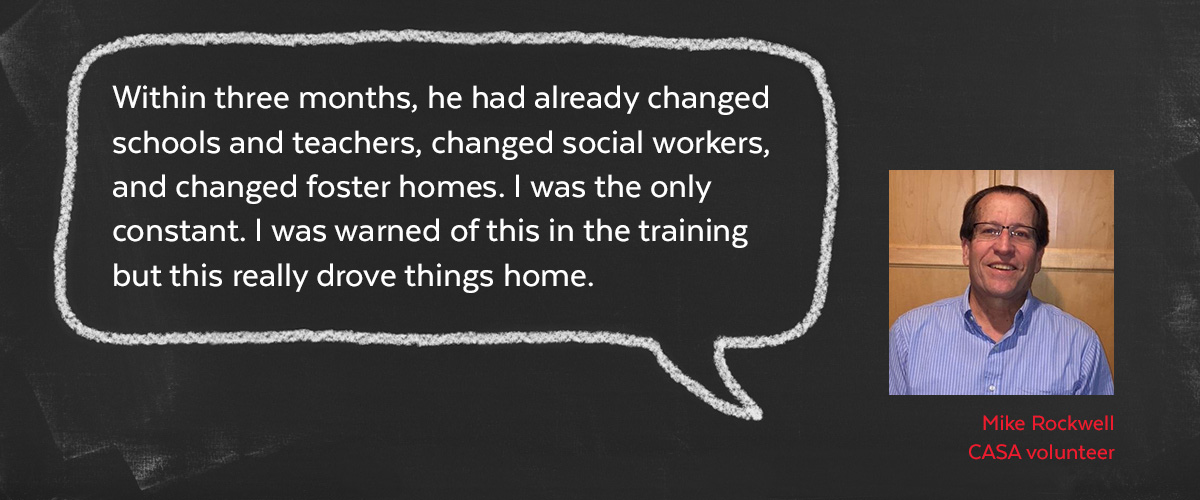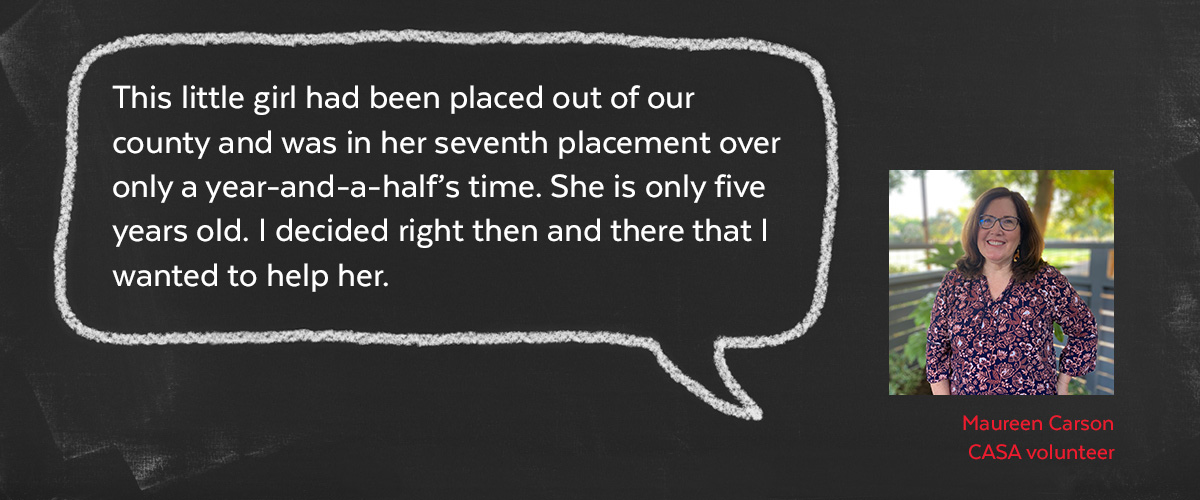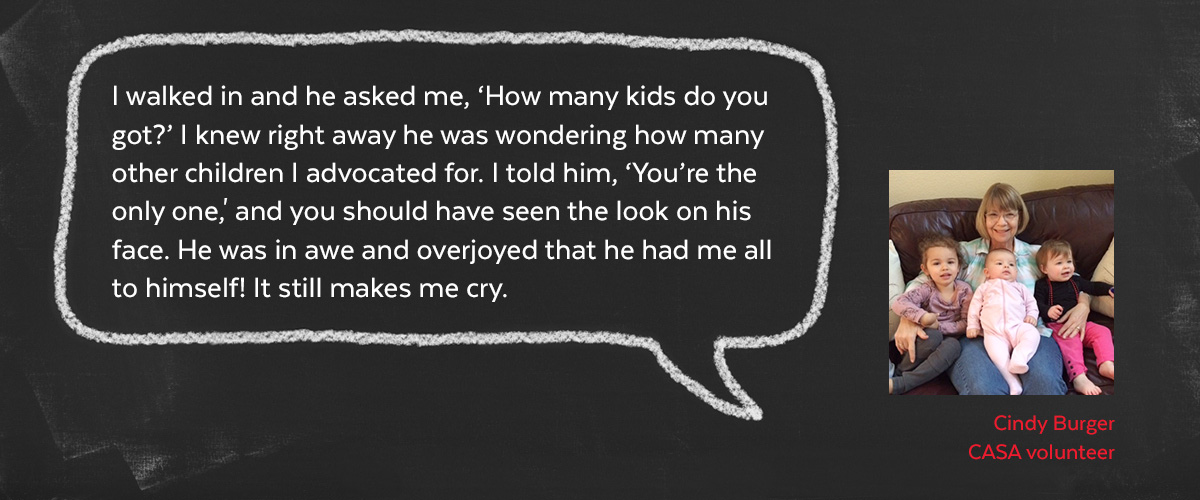Many life lessons surface while flying a kite. Just ask one of our CASA volunteers, Maggie Sanger. “The day I met my second CASA child she was so young. I’ll never forget when I took her to fly a kite for the first time. She lost her grip and it flew away. We ran chasing it across the field until it got stuck in a structure. She was frightened and inconsolable. When I shrugged it off she said, ‘You don’t understand! It’s my fault. I let go on purpose!’ When asked why she said through her tears, ‘I wanted to see what would happen.’
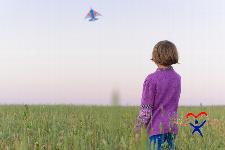
I laughed and said, ‘Well, now you know!’ Through our interactions we can model healthy behavior and help foster children to not fear an adult’s response and to learn how to trust.”
Maggie is no stranger to replacing fear with trust. She is the youngest of five siblings, all of whom had some type of addiction. Her father suffered from alcoholism and mental illness and her mother also suffered from mental illness. “I somehow escaped addiction. I joke that there was nothing left for me to do. However, I did not escape the trauma of my childhood, and I wanted to make an impact for children who had suffered like me.”
This became an even stronger calling when her own sister went through a difficult time, resulting in foster care for her five children. “I was too young at the time to become a caretaker for my sister’s children and it furthered my desire to help when I was able.” Despite being extremely busy with one child and three stepchildren of her own, she made the commitment early on.
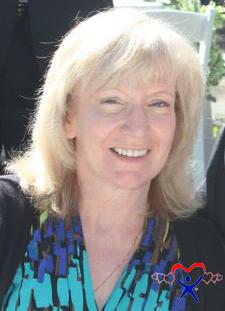
After years of being a CASA, Maggie shares several insights about what the job entails. “You are there as a companion for the journey to look at options and shine light on problems. You do not need to solve every problem or be an expert, you just need to be present and open.” Maggie also cites unexpected personal growth from the CASA experience, “People think it’s the foster children who are lucky to have CASAs but it’s the exact opposite. I am the lucky one.”
Maggie highlights that often, her CASA children had a hard time wrapping their heads around the fact that she was not paid to be with them. “Your heart goes out to the child because you can see that it truly confuses her to know that you are there with her just because you want to be. Think about the magnitude of that for a minute. It’s pretty profound.”
As for her first CASA child, Payton, Maggie has seen her through braces, boyfriends, tough decisions, and hard times, yet she is fascinated by the fact that her CASA child is so non-judgmental and well-adjusted. She is now 18, renting a room, and preparing to attend college in the fall. Maggie reflects, “I’ve watched her grow into a beautiful, amazing young adult. I couldn’t be more proud of her if she were my own.”

…And the feeling is mutual. Just recently, Payton had some special words to share about Maggie, “If I could change one thing it would be for every kid to have a CASA like you…someone who is willing to go the extra mile to make another person happy and who does not judge along the way. You have made a significant impact on my life and I hope one day I can do the same.”
Sometimes history truly does repeat itself…

